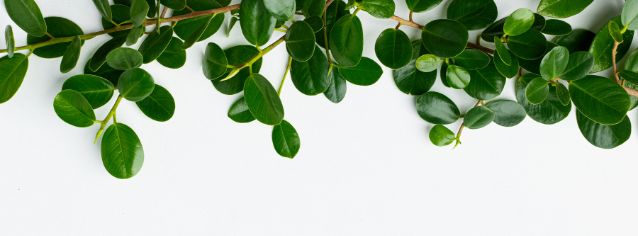As the environmental and health implications of eating animal products are becoming more known worldwide, more and more people are choosing to adopt a vegan diet. The University of Oxford even says that avoiding meat and dairy is the one biggest thing you can do to lower your carbon footprint. There is no right way to go vegan, but there are some useful things to know to help your journey be an easy one. Here are some top tips that can make your transition a smoother ride.
1. Learn How to Replace Dairy Products
If you are a fan of cream, milk, butter, and cheese, you'll want to learn how to replace those foods with non-dairy equivalents. Fortunately, there are lots of choices! Not only can you often buy plant-based equivalents of these foods in your local supermarket, but you can easily make vegan dairy yourself.
Replacing cheese
There are many vegan cheese recipes you can learn to make at home if you don't want to buy ready-made products. Ingredients such as nutritional yeast provide a cheesy, umami flavour to many recipes, and it's a perfect substitute for Parmesan.
Replacing cream
To replace cream, including sour cream, liquid cream, and cream cheese, cashews are your new ally. Cashew cream is miraculously delicious and simple to make:
- Soak cashews overnight, drain, and blend with fresh water.
- For sour cream, add a drizzle of lemon juice.
- For sweet cream, add a dash of vanilla and your preferred sweetener.
- For cream cheese, make thick cashew cream and add herbs and spices, including freshly chopped chives.
Replacing butter
Instead of butter, try coconut oil or olive oil. Olive oil can be frozen in cubes to be used over hot food, as it will 'melt' nicely. There are also some really great fake butters (including the one I taste tested on my bf before he was vegan, and even though he insisted he'd know which was which, he actually didnt) and many margarines are accidentally vegan.
Replacing milk
There are many non-dairy kinds of milk available to buy, but you can make your own by soaking raw nuts such as almonds, hazelnuts, or cashews overnight and then blending with fresh water. Note: You may want to strain your almond milk if you don't want the tiny bits of nut and skin. You can afterward use the pulp to make bread or crackers. Note No. 2.: making oat milk is the easiest (5 minutes, no overnight soaking) and way more eco-friendly: most almonds come from water-poor California (and almonds need a lot of water, so...)
2. Have Some Meat-free Recipes Ready
You'll definitely want to learn how to make tofu before starting your vegan journey. While tofu on its own doesn't have a particular flavour, it will absorb the flavour of spices or sauces, particularly if you've pressed it first. Look at some of your favourite meat recipes, if you have any, and find meat-free equivalents. For instance, vegetable tagine can become your new favourite Mexican dish! You can even create child favourites such as fish fingers with sliced, breaded, and fried or baked tofu sticks. The magic is in the sauce!
3. Find Some Handy Websites or Apps
There are free, community-led websites or apps that are dedicated to supporting vegans around the world. Apps like Abillion (short for "introducing veganism to a billion people"), Barnivore, and Happy Cow (which is also a website) help you source vegan products and restaurants no matter where you live. Users leave reviews, so you know what to try before you buy.
4. Know Your Nutrition Facts
As soon as people know you are vegan, they will likely ask you, "Where do you get your protein?" So here's your answer: everywhere! Protein is widely available in plants - vegetables, nuts, seeds, and even fruit. Know that it's a widespread misconception that you have to eat meat to get protein - you won't be protein-deficient. The only nutrient that you will want to use a supplement for is vitamin B12 - and that's because the soil today doesn't have the same level of nutrients as it used to. We used to get vitamin B12 from dirt residue attached to our produce, but not anymore. Meat eaters get this vitamin from the digestive tracts of herbivores - personally, I'd rather take a supplement!
5. Wrap Up & Don't Forget: Go Easy On Yourself :)
Veganism is a journey, not a destination. Every vegan has at some point consumed animal products, whether knowingly after a bout of cravings (which do dissipate over time, in our experience) or unknowingly. Many products promoted as vegetarian or plant-based still have animal products, so check the labels of what you buy. If you find that you're craving meat, you can satisfy those cravings in a plant-based way if you know how. And if you have eaten that pepperoni pizza, go easy on yourself. You are still making way less of an impact on the planet than most people, and you are kinder to animals, too. One step at a time. Also, watching Earthlings again might help - here's our reaction video to it:








